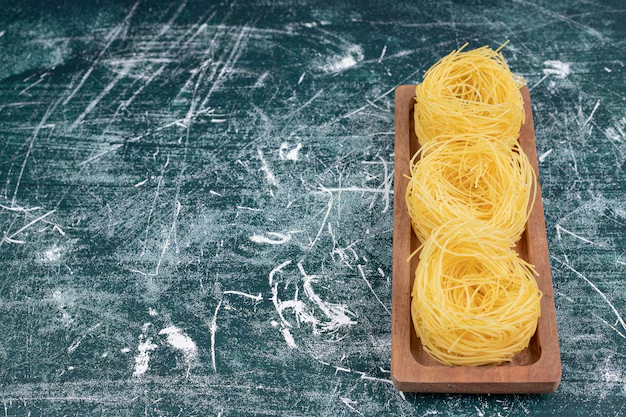How Long Do Cooked Noodles Last in the Refrigerator?
When you reach into your refrigerator for some leftover noodles, it's not just about reliving that delicious meal; it's about ensuring that what's on your plate is still safe to eat. Understanding how long cooked noodles last in the refrigerator can save you from any risks of foodborne illnesses. In this comprehensive guide, we explore how to store your noodles smartly, recognize spoilage signs, extend shelf life, and repurpose those noodle leftovers creatively. Let's dive right in!
🥢 Understanding Noodle Shelf Life
Types of Noodles and Their Storage Needs
Noodles are a versatile staple enjoyed worldwide, from classic Italian pasta to spicy Asian ramen. However, the type of noodle can influence how long it remains fresh when stored:
- Wheat Noodles (Spaghetti, Fettuccine, etc.): These common pasta types are robust in structure and can last several days when stored correctly.
- Rice Noodles: These have a delicate texture and can dry out faster, demanding more care during storage.
- Egg Noodles: Popular in soups, have a slightly shorter shelf life due to their ingredients.
- Instant Noodles: Often contain preservatives, potentially extending their fridge life slightly, although the taste may falter.
General Guidelines for Storing Cooked Noodles
Typically, cooked noodles can last in the refrigerator for about 3 to 5 days. However, this period can vary depending on storage practices and the type of sauce or ingredients mixed with the noodles.
Key Storage Tips:
- Use Airtight Containers: Store noodles in airtight containers to minimize moisture loss and prevent the absorption of other fridge odors.
- Separate Sauce and Noodles: If possible, keep sauces or toppings separate, as they may spoil or alter the flavors faster than the noodles themselves.
- Quick Cooling and Prompt Storage: Cool noodles quickly after cooking, within two hours, to prevent bacterial growth before refrigerating.
🍜 Safeguarding Your Noodles
Recognizing Signs of Spoilage
Identifying spoiled noodles isn’t always obvious. Here are some telltale signs that your noodles may have passed their prime:
- Smell: An off or sour odor is a significant red flag.
- Texture: If the noodles are excessively dry, slimy, or sticky, they might have gone bad.
- Appearance: Any visible mold or discoloration signifies spoilage.
Safe Practices to Extend Shelf Life
- Portion Control: Only cook what you’ll consume in the immediate days to avoid excessive leftovers.
- Use Fresh Ingredients: The fresher the ingredients when cooked, the longer the overall dish will last.
- Regular Checks: Regularly assess items in your refrigerator for spoilage to prevent cross-contamination.
🥡 Freezing Noodles for Longer Storage
Is Freezing an Option?
Certainly! Freezing cooked noodles can extend their shelf life significantly, often up to two months. But not all noodles freeze equally well:
- Best Candidates: Wheat-based and egg noodles maintain flavor and texture after thawing.
- Delicate Choices: Rice noodles might become mushy upon thawing; it's better to consume them relatively soon after freezing.
Freezing Perfectly
- Slight Under-cooking: Cook noodles a bit less than usual, as freezing and reheating can soften them further.
- Single Layer Pre-freezing: Place noodle portions in a single layer on a baking sheet to freeze initially. Once solid, transfer to airtight freezer bags or containers.
🍽️ Creative Ways to Use Leftovers
Sometimes plain reheating can feel uninspired. If you find yourself with cooked noodles and no dinner plan, here are some creative ideas:
Repurposing Leftover Cooked Noodles
- Noodle Stir-fry: Toss noodles with some veggies, protein, and sauce for a quick stir-fry.
- Noodle Soup: Add noodles to broth, season with herbs, and embellish with proteins like tofu or chicken.
- Pasta Frittata: Mix noodles with eggs, cheese, and vegetables, then bake or fry for a comforting dish.
- Noodle Salad: Combine cold noodles with vibrant veggies and a tangy dressing for a refreshing salad.
- Casserole Bake: Layer noodles with sauce, cheese, and protein; bake until bubbly and golden.
📋 Summary Cheat-Sheet
Here’s a quick-reference guide for noodle storage:
- ⏰ Shelf Life: 3-5 days in the fridge or up to 2 months in the freezer.
- 🥡 Storage Tips: Store in airtight containers and keep sauce separate.
- ❌ Spoilage Signs: Sour smell, slimy texture, discoloration.
- 🥶 Freezing Tips: Slightly under-cooked before freezing, then use airtight containers.
- 🍚 Creative Uses: Stir-fry, noodle soup, frittata, salads, and casseroles.
Bringing It All Together
Storing cooked noodles properly ensures you enjoy safe and delicious meals without waste. By following these practices, you can extend their shelf life and maintain their quality. Understanding the nuances of noodle types, smart refrigeration techniques, and creative leftover ideas can empower you to manage your food storage efficiently. So, the next time you twirl that forkful of noodles, you’ll know the secret to keeping them fresh and flavorful.

